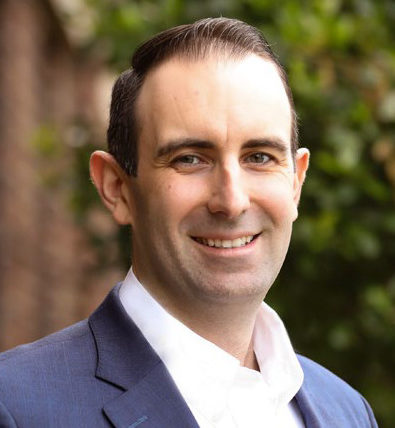
Editor’s note: Peer-to-Peer is a feature from McKnight’s Home Care Daily in which we talk to the leaders in home care, your peers, about their operational initiatives, efforts and ideas. If you think someone in home care would make a good subject for Peer-to-Peer, please email Diane Eastabrook at [email protected].
When veteran healthcare executive Charles McDonough landed the CEO post at Interim Healthcare of the Upstate last fall, it was the best of times and worst of times to get into the home healthcare space. The nation was in the midst of a raging pandemic, but at the same time, demand for home healthcare was accelerating.
The Greenville, SC-based franchise cares for 4,000 patients a day in the northern quadrant of the state and is growing census through its recent expansion into the middle of South Carolina. By 2023, the franchise will be offering its full continuum of services including personal care, home medical care, hospice and healthcare staffing throughout the state. That could nearly double the number of patients Interim serves.
McKnight’s Home Care Daily recently talked to McDonough about what agencies need to do to survive in an increasingly competitive environment.
McKnight’s Home Care Daily: You provide a lot of different services. Today, is it enough to provide one service, such as home care or home healthcare?
Charles McDonough: You have to do a self-evaluation of where you want to be and how you want to succeed. It’s certainly easier when you have a full continuum. We take a patient and you look at an accountable care organization with our organization and they say, ‘Here’s the patient, we’re going to pay you per member per month. Figure it out.’ It’s a lot easier to do when you control all of the pieces of the puzzle. If you have to find other pieces, then you have to start finding individual organizations that are sharing the same mission, operational culture and those types of things. You can; I’ve just found that it’s a lot harder.
McKnight’s Home Care Daily: Do you have a lot of clients who go through that continuum of care with you?
Charles McDonough: Right now our best data tells us that just over 30% of our patients walk through the full continuum. When customers come to find the Interim family, we try to make sure we live that to the best of our ability. We have a very robust home medical program. We have a bridge program that focuses on the advanced illness planning and end-of-life transition for patients. We use our personal care services to fill in some of the non-medical gaps … As far as our strategic planning process, we’re looking at building on additional service lines, so palliative care is on our road map for 2022. Chronic care management outside the home is on our roadmap for 2022. We’re trying to build all of the pieces where it makes sense.
McKnight’s Home Care Daily: Are hospital-at-home partnerships something home healthcare agencies should be considering?
Charles McDonough: We do participate in a hospital-at-home as a partner. It’s one of the biggest opportunities of the sector. The average savings of a patient going into a hospital-at-home program is almost $15,000 to $18,000 a treatment. That reduces the spend to Medicare, frees up capacity in the hospital and puts a patient that doesn’t need to be in a facility, and can heal, at home. So I would challenge any home health agency that’s not doing it to do it because you’re going to be taking care of the patient anyway. It’s just 10 to 15 days later, after they’ve been in the hospital. It’s one of the biggest opportunities home health has today. In addition to hospital at home, SNF-at-home is right there next to it as you see the Choose Home Act of 2021 coming out. That’s another opportunity.
McKnight’s Home Care Daily: How is your staffing business benefiting from the shortage of care workers?
Charles McDonough: We’ve actually seen it as a swim lane. We put candidates in other places if they aren’t the right fit for our businesses. We’ve got a pretty good pipeline to hire people. Our reputation precedes us, so we’ve actually used it as a funnel to see which employees would work in the best location. Would someone be better over here at the dermatology office as one of their registered nurses, versus being a case manager out in the field. It really gives us a pipeline to fuel the rest of our businesses. Financially, it’s been great because supply and demand often yield staffing companies better margins. It’s like having our own little Indeed page where we might say, ‘Home health nursing may not be right for you, but we have a medical practice that would fit you perfectly.’ That has been the value.




